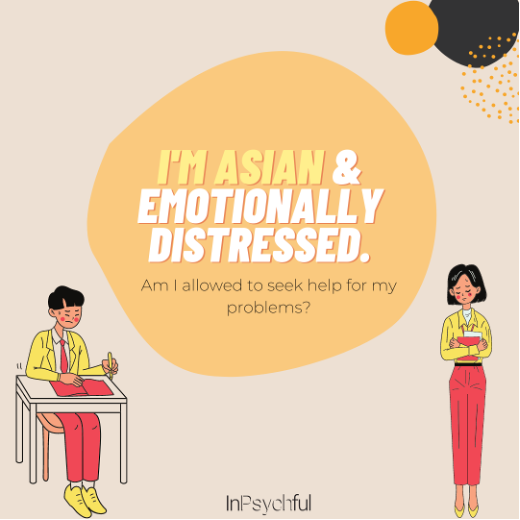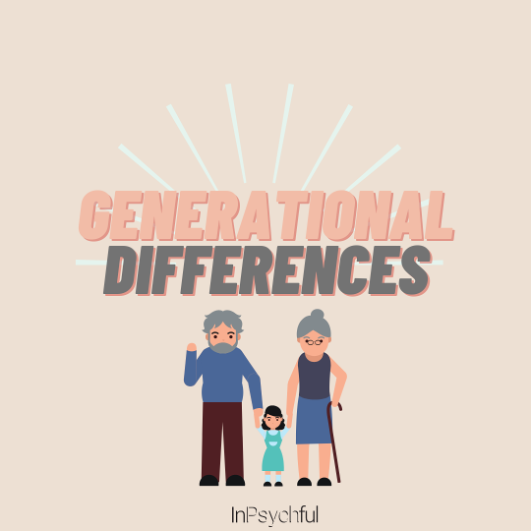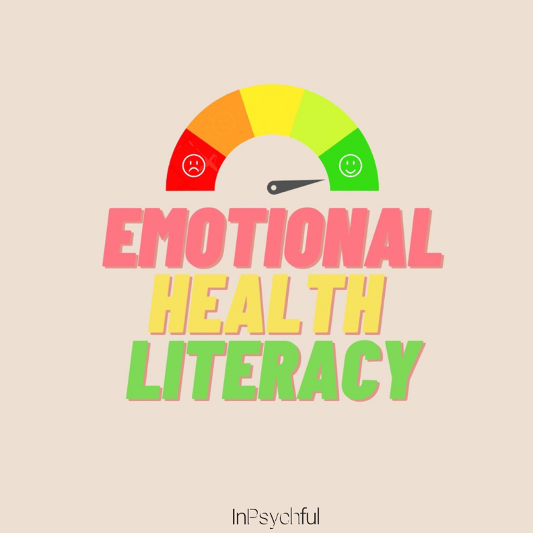In our Asian society, seeking professional help for emotional or mental health poses many challenges and stigmas surrounding it. Many of us have become so used to staying silent that even when we are suffering, we don’t dare to seek help. We may turn to our friends for comfort but sometimes they may not be able to relate to what we’re going through. It is time we start listening to our needs and care for our own emotional health.
Similar to physical health, emotional health is one of our most basic and essential assets. According to the World Health Organization (2020), health is a state of complete physical, mental and social well-being, and not merely the absence of disease or infirmity. Hence, it is important to care not only for ourselves physically but mentally and emotionally. Unfortunately, emotional health seems to be mostly neglected and even stigmatised especially if one is suffering from a mental illness.
So, what exactly is emotional health and why is it important? It refers to the way we think, feel and connect to ourselves and others. Good emotional health does not equate to always feeling happy or not experiencing any negative emotions. Rather, it’s the ability to utilise the skills and healthy habits to manage the highs and lows in our daily lives. Studies have shown that emotional health is highly correlated to our physical well-being. Emotional support can help safeguard against the risk of falling ill and contracting diseases. When one is more in tune with their emotions and is able to manage them, it becomes easier to empathise and form deeper bonds with others. Being able to possess a positive mindset can also enhance one’s mood and energy levels allowing one to focus and process better (Lamothe, 2019).
Taking all this into consideration, let us explore reasons as to why seeking help for emotional health is not a common thing in Singapore.
Why do Singaporeans not seek help?
Culture
It is common in Western movies that we see a client in a psychology clinic consulting their therapist about their problems. This draws up a common misconception that all Westerners are open to therapy. Research have suggest that it is mainly Caucasians who are far more open in seeking therapy compared to the racial or ethnic minorities who are less likely to turn to mental health services due to shame and embarrassment of seeking help outside of the family, or sharing their “personal business” with others. (Anglin et al., 2008).
Living in an Asian culture, seeking help for mental and emotional health are commonly associated with negative stereotypes placed on the individual. Six in 10 are convinced that mental health problems are caused by a lack of self-discipline and determination, while 50% believe that they should not be given any responsibility (Ng, 2018). These stereotypes and false beliefs could also directly impact career opportunities and face prejudice among coworkers as well. Many also fear what their employers would say if they were to disclose any psychological problems they struggle with (Ong, 2020). In a competitive society such as Singapore, there are many stressors for individuals to stay relevant, be a high-performing person, and the grilling of academic and career success. The stigma surrounding emotional health issues causes many to prefer staying silent about their struggles in order to avoid getting judged and be seen as incompetent (Goh, 2020).
Generational Differences
There are many things that divide the Xennials, Millennials and Gen Z’s from the baby boomers. The difference in attitude towards marriage, fashion choices, religiousness, lifestyle and more crucially, emotional health. The younger generation is more inclined to share their struggles with peers rather than their parents. They believe their parents are not convinced that their own emotional struggles are real, thus, would rather hide from their families that they are wrestling with their emotional health or are seeking help (Goh, 2020). Often, when they finally pluck up the courage to tell their parents about their struggles, they are quickly told to “get over it” or “we had it much worse than you, you should be grateful”. This lack of sympathy and awareness from the older generation contributes to the emotional turmoil that children face.
Furthermore, it is culturally ingrained that we should not air our ‘dirty linen’ and maintain our family’s image. Parents may be the biggest hurdle for children who want to seek help from professionals. This habit of staying silent is then passed down to the younger generations who are struggling but are discouraged to speak up about their problems.
Emotional health literacy
For most people, it can be hard and sometimes uncomfortable to talk about personal struggles with family members. However, this communication problem is much more noticeable in Asian societies where this topic is often misconstrued. This is due to the fact that most Asian parents are uninformed or do not have sufficient knowledge of emotional health and most struggle to grasp the concept of depression (Khoo, 2018). Furthermore, when the topic of discussion is serious or when it becomes intense, most Asian families are uncomfortable dealing with the emotions that they are confronted with. Emotions are usually suppressed or deemed as unnecessary in many situations.
Many think that mental illness as a binary diagnosis, meaning either one has it or one does not have it, as compared to mental health as a continuum. People with the continuum view understand that everyone will get angry, anxious, and overly stressed at some point and mental illness is in another dimension. A study conducted on Singaporeans reported that about half the participants supported that depression and dementia were a continuum view while only one-third thought schizophrenia, alcohol abuse and obsessive-compulsive disorder (OCD) were of a continuum of symptoms. It also revealed that people who were informed about mental illness were more likely to be more accepting and believe in the continuum of symptoms (Subramaniam et al., 2017).
Moreover, it is known that Asian parents place a lot of pressure on their children especially for their academic success, and any failure is seen as shaming the family. Many parents do not realise that their high expectations can cause stress and anxiety levels to build up in the child’s life, which may eventually take a toll on their emotional health if it is not taken care of. It is also common for Asian parents to have the parental mindset of “providing” for their child’s physical needs but paying little attention to the feelings of their child. It is crucial that parents learn to acknowledge and validate their child’s emotions and try to understand them. This could be a vital step in helping the child feel loved, secure, and build emotional resilience (Louie, 2015).
While it sounds as though the Asian culture is conservative and lacking in knowledge when it comes to managing our emotions, it good news is that the younger generation is more willing to speak up and take action whenever they recognise that they are unable to handle the emotional struggles alone. It is important that we are able to cultivate acceptance towards emotional health issues in the society. This may help bridge the gap in understanding and educating the generations. As humans, we are all fighting our own battles but sometimes it is okay to get some help when we cannot manage on our own. Tradition and culture plays a huge role in our lives whether we are an Asian or Caucasian, however, experiencing emotional distress affects humans across the globe and does not divide race or ethnicity. Let’s start to take care of our health in a more holistic manner, rather than compartmentalising physical, mental, and emotional health.
Keep a lookout for next week as we share methods on how to care for your own emotional well-being!
Author: Camellia Wong (MA)., Sara Chiang
Related Articles
Understanding Stigmatization in Singapore Around Mental Illness
Understanding Why Anxiety is Not the Enemy This Circuit Breaker, and Post COVID-19
References
Anglin, D. M., Alberti, P. M., Link, B. G., & Phelan, J. C. (2008, September). Racial differences in beliefs about the effectiveness and necessity of mental health treatment. American journal of community psychology. https://www.ncbi.nlm.nih.gov/pmc/articles/PMC4009685/.
Goh, C. T. (2020, December 22). IN FOCUS: The challenges young people face in seeking mental health help. CNA. https://www.channelnewsasia.com/news/singapore/in-focus-young-people-mental-health-singapore-treatment-13002934.
Khoo, I. (2018, June 18). Asian Parents’ Lack Of Mental Health Knowledge Is Hurting Their Kids. HuffPost Canada. https://www.huffingtonpost.ca/2018/06/18/asian-parents-mental-health_a_23462016/.
Louie, S. (2015, April 11). Asian Parenting. Psychology Today. https://www.psychologytoday.com/sg/blog/minority-report/201504/asian-parenting.
Lamothe, C. (2019, June 14). Emotional Health: Why It’s as Important as Physical Health. Healthline. https://www.healthline.com/health/emotional-health#examples.
Lim, J. (2019). The Big Read: With youths more open about mental health, it’s time others learn to listen. TODAYonline. https://www.todayonline.com/big-read/big-read-youths-more-open-about-mental-health-its-time-others-learn-listen.
Ng, C. (2018, September 9). Many still steer clear of people with mental illness: Poll. The Straits Times. https://www.straitstimes.com/singapore/many-still-steer-clear-of-people-with-mental-illness-poll.
Ong, A. (2020, March 14). Commentary: Will you hire and retain persons with mental health conditions? CNA. https://www.channelnewsasia.com/news/commentary/discriminatory-hiring-persons-with-mental-health-12530752.
World Health Organisation (WHO). (n.d) Constitution. https://www.who.int/about/who-we-are/constitution.




